
Suspense is a radio drama series broadcast on CBS Radio from 1940 through 1962.
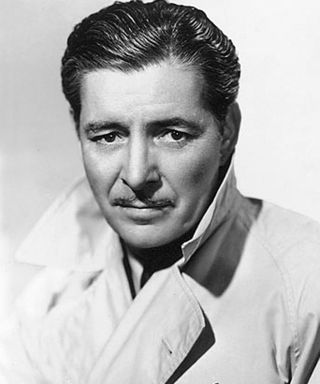
Ronald Charles Colman was an English-born actor, starting his career in theatre and silent film in his native country, then emigrating to the United States and having a highly successful Hollywood film career. He starred in silent films and successfully transitioned to sound, aided by a distinctive, pleasing voice. He was most popular during the 1920s, 1930s and 1940s. He received Oscar nominations for Bulldog Drummond (1929), Condemned (1929) and Random Harvest (1942). Colman starred in several classic films, including A Tale of Two Cities (1935), Lost Horizon (1937) and The Prisoner of Zenda (1937). He also played the starring role in the Technicolor classic Kismet (1944), with Marlene Dietrich, which was nominated for four Academy Awards. In 1947, he won an Academy Award for Best Actor and Golden Globe Award for Best Actor for the film A Double Life.
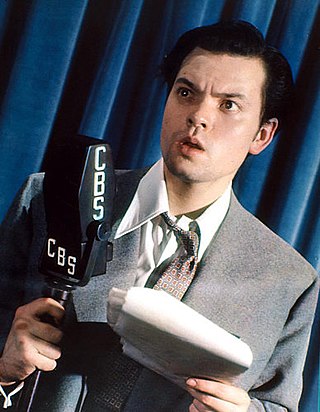
The Campbell Playhouse (1938–1940) is a live CBS radio drama series directed by and starring Orson Welles. Produced by Welles and John Houseman, it was a sponsored continuation of The Mercury Theatre on the Air. The series offered hour-long adaptations of classic plays and novels, as well as adaptations of popular motion pictures.

Bold Venture was a syndicated radio series starring Humphrey Bogart and Lauren Bacall that aired from 1951 to 1952. Morton Fine and David Friedkin scripted the taped series for Bogart's Santana Productions.

Lux Radio Theatre, sometimes spelled Lux Radio Theater, a classic radio anthology series, was broadcast on the NBC Blue Network (1934–35) ; CBS Radio network (1935–54), and NBC Radio (1954–55). Initially, the series adapted Broadway plays during its first two seasons before it began adapting films. These hour-long radio programs were performed live before studio audiences. The series became the most popular dramatic anthology series on radio, broadcast for more than 20 years and continued on television as the Lux Video Theatre through most of the 1950s. The primary sponsor of the show was Unilever through its Lux Soap brand.
Ziv Television Programs, Inc. was an American production company that specialized in productions for first-run television syndication in the 1950s.

An anthology series is a written series, radio, television, film, or video game series that presents a different story and a different set of characters in each different episode, season, segment, or short. These usually have a different cast in each episode, but several series in the past, such as Four Star Playhouse, employed a permanent troupe of character actors who would appear in a different drama each week. Some anthology series, such as Studio One, began on radio and then expanded to television.
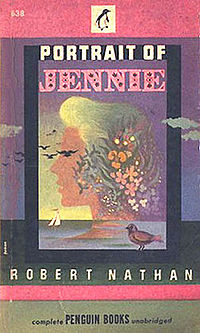
Academy Award is a CBS radio anthology series, which presented 30-minute adaptations of plays, novels, or films.

Ford Theatre, spelled Ford Theater for the original radio version and known, in full, as The Ford Television Theatre for the TV version, is a radio and television anthology series broadcast in the United States in the 1940s and 1950s. At various times the television series appeared on all three major television networks, while the radio version was broadcast on two separate networks and on two separate coasts. Ford Theatre was named for its sponsor, the Ford Motor Company, which had an earlier success with its concert music series, The Ford Sunday Evening Hour (1934–42).
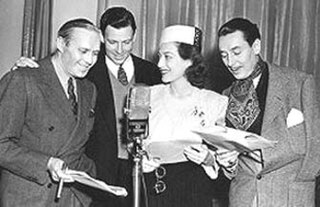
The Screen Guild Theater is a radio anthology series broadcast from 1939 until 1952 during the Golden Age of Radio. Leading Hollywood stars performed adaptations of popular motion pictures. Originating on CBS Radio, it aired under several different titles including The Gulf Screen Guild Show, The Gulf Screen Guild Theater, The Lady Esther Screen Guild Theater and The Camel Screen Guild Players. Fees that would ordinarily have been paid to the stars and studios were instead donated to the Motion Picture Relief Fund, and were used for the construction and maintenance of the Motion Picture Country House.
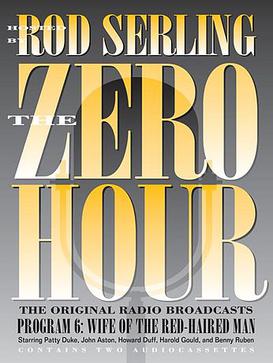
The Zero Hour was a 1973–74 American radio drama anthology series hosted by Rod Serling. With tales of mystery, adventure and suspense, the program was broadcast for two seasons. Some of the scripts were written by Serling.
Your Favorite Story is a syndicated TV anthology series that was broadcast in the United States from 1953 to 1955. The program was also known as My Favorite Story. It was premiered in December 1954 with the title Your Favorite Playhouse.
Hollywood Playhouse, also known as Woodbury Hollywood Playhouse, is a radio anthology drama series that featured adaptations of plays and short stories. Created as a showcase for Tyrone Power, the series began October 3, 1937, on the Blue Network, with Darryl F. Zanuck introducing his 20th Century-Fox star. The half-hour program aired Sundays at 9 p.m. ET until September 1939, when it was moved to the NBC Red Network Wednesdays at 8 pm ET. Woodbury Soap and Jergens Lotion sponsored the show.
Hollywood Star Playhouse is a radio dramatic anthology series in the United States. It was broadcast April 24, 1950-February 15, 1953, appearing on CBS, ABC and NBC over that span.
The Cresta Blanca Hollywood Players was a dramatic anthology series on radio in the United States. It was broadcast on CBS September 3, 1946 – February 26, 1947.
The MGM Theater of the Air is a one-hour radio dramatic anthology in the United States. It was broadcast on WMGM in New York City and syndicated to other stations via electrical transcription October 14, 1949 – December 7, 1951. It was carried on Mutual January 5-December 27, 1952.

For the television series of the same name, see The Silver Theatre.
Frederic W. Ziv Company produced syndicated radio and television programs in the United States. Horace Newcomb's Encyclopedia of Television described the company as "by 1948 ... the largest packager and syndicator of radio programs" and later "the most prolific producer of programming for the first-run syndication market during the 1950s."
Brownstone Theater is an old-time radio dramatic anthology series in the United States. It was broadcast on the Mutual Broadcasting System February 21, 1945 – September 23, 1945.
Hallmark Playhouse is an American old-time radio dramatic anthology series. It was broadcast on CBS from June 10, 1948 until February 1, 1953, and was described by one author as "a program that consistently produced the highest levels of production quality and value." Beginning on February 8, 1953, the program underwent changes of title, host, and format. It was broadcast as The Hallmark Hall of Fame until March 27, 1955, still on CBS.











